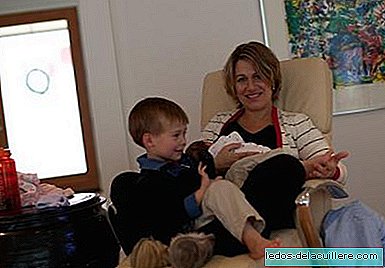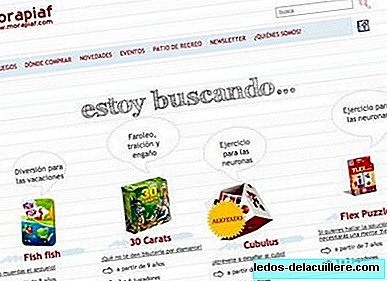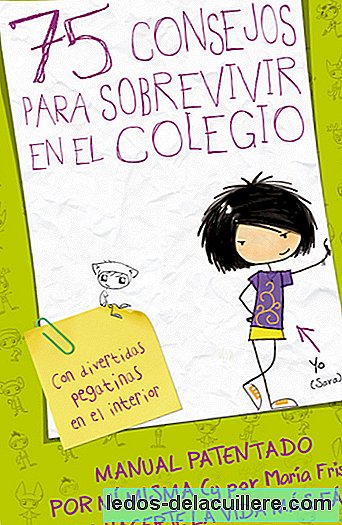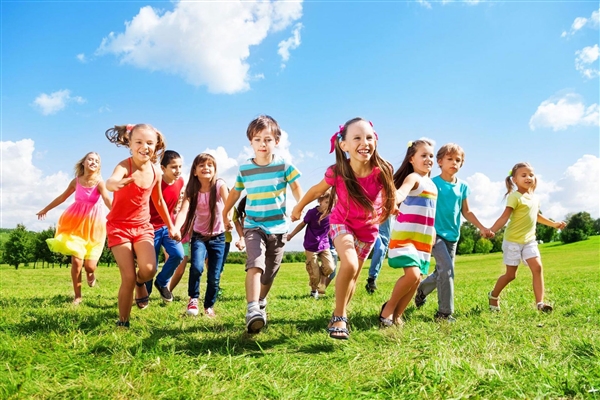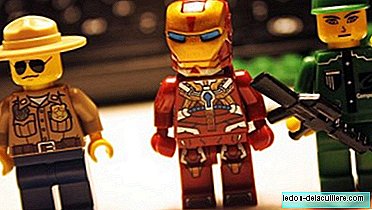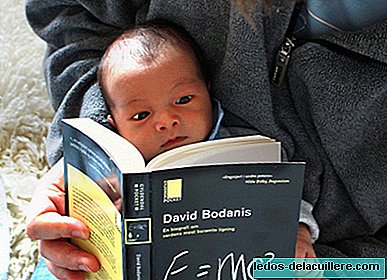
Comparing between our son and the other children in his environment of his age, we can see that not everyone has the same vocabulary or expresses themselves in the same way. Some children speak in a manner more similar to that of adults, while others speak more according to their age. However, as I noted before, everyone is the same age. So, Why do children learn some words before others?.
Not all children have the same repertoire of names of objects, animals or things; neither are they expressed in equal phrases, as far as their length is concerned. That is, there are children who can say, when asked by an adult of the type "what do you have in your hand?", "The big ball" while others can say "this big ball".
As always when I speak of language, this rule being applicable to many other skills, one must always keep in mind that each child is a world, and that depending on several factors, children will be able to handle a certain type of vocabulary and expressions sooner or later. , as well as learn some words before others.
To begin, we could say that children begin to say their first words, or what we interpret as such, about 12 months of age. And I say what we interpret as words because parents are eager for our son to address us with words.
In this desire to want to hear our son say "dad" or "mom" makes us give a specific meaning to the typical emissions of the babble stage of the child and act accordingly. However, this is not bad, as this will make it easier for the child to really and effectively acquire the words.
This makes us see that vocabulary acquisition is not something the child has to do alone, but we play a very important role in this process. A very clear example is when we read a book to our son since, as we have already seen, it is a very effective way to facilitate him to learn new words, especially in children from two years of age.
If we realize, many of the words that our children use in their day to day are those that we have said in front of them with the same intention with which they do the children. That is, if I have said in front of my son many times "I am going to drink a glass of water", and he sees how I take the water and put it in a glass, it is easier than when the child wants to drink, use a phrase similar to mine, or simply the word water, to make me understand that he wants to quench his thirst.
On the other hand, not only with adults does the child acquire language, since in contexts in which there are many children (in the park, at school, in the family if there are several children ...) and especially if they are of different ages , our child will have an environment that will provide many different models. The presence of other children means they have to adapt their speech to those who are not as skilled as adults., as far as language is concerned.
Generally, the words that will make up our child's vocabulary towards two years of life will be mainly names, adjectives and verbs, although this does not indicate that children are not able to use prepositions, conjunctions and other types of words.
Among the names, the most used are those that refer mainly to names of person or animals, while the verbs that our children will use most will be those of action, that is, those that indicate some activity or a change of state.
Children will use their own tactics to acquire as many words as possible, but as we have seen before they will not have to do it alone; we and the environment will be a very important pillar in this process. The children will have to play To have fun learning, and we will have to adapt to the needs of the child to favor his learning.
Thus, we see that there are many factors that influence that Children learn some words before others, either because of their ease in pronouncing them, either because they are more common in their day-to-day life, or because children have an immediate response to them, which would not happen with others (it is easier to learn the word "ball" , since they may have a physical object that bounces in their hands, that the word "above", which includes more complex cognitive processes).


